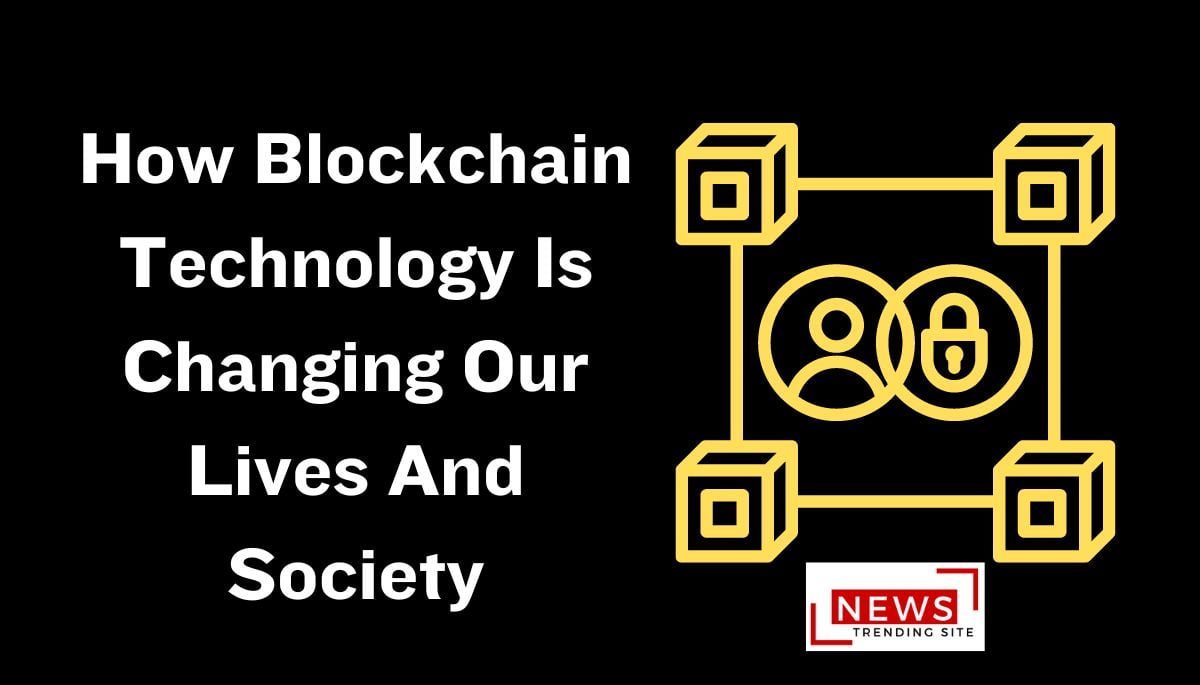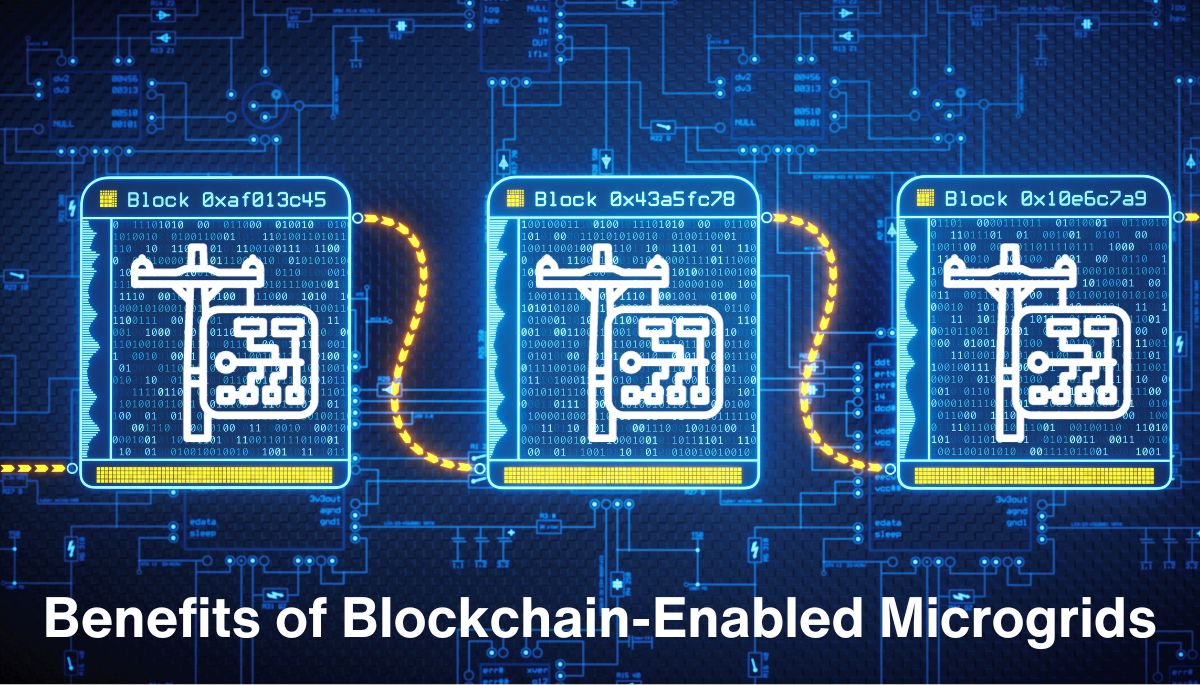Table of Contents
The narrative of how blockchain technology is changing our lives and society is becoming increasingly important in this age of fast technical advancement.
Blockchain is a transparent, decentralized ledger system initially utilized for virtual currency. While Bitcoin brought attention to blockchain in 2013, the technology has many uses beyond cryptocurrency. Blockchains create fast, cheap, and secure records, which enable non-financial applications like voting, document proofing, and supply chain tracking.
Blockchains are well-suited for managing ownership histories, like tracing the ethical sourcing of goods or enabling the sale and transfer of digital media. They also present public service opportunities in areas like healthcare and welfare payments. Self-executing contracts could pave the way for companies to run themselves without human intervention through blockchain.
While blockchains distribute some control away from centralized entities to users, making systems more transparent and democratic, they likely won’t fully revolutionize or replace existing institutions. Governments and corporations are exploring blockchain to enhance services rather than make themselves obsolete.
There are also privacy issues regarding blockchain’s radical transparency, as it may be possible to identify individuals associated with transactions in some cases. Though blockchains aren’t a blanket solution to every problem, they could substantially impact many areas of life. Understanding blockchain’s challenges and opportunities is necessary as adoption accelerates.
Areas Where Blockchain is Creating Change
A. Finance

So far, blockchain technology has had the most significant influence on international banking and finance. Blockchain technology allows decentralized digital currencies to operate safely, eliminating the need for trusted third parties. Decentralized finance (DeFi) goes beyond virtual currencies by reimagining standard financial instruments like lending and derivatives in a transparent, user-friendly way using blockchain infrastructure.
With a market valuation of over $1.72 trillion, cryptocurrencies are the first genuinely digital assets to reach a global audience without access to traditional banking services. The most popular digital currencies use blockchain technology to eliminate intermediaries like banks and payment processors from peer-to-peer transactions. This gets rid of expensive transaction fees and delays.
The expansion of decentralized finance occurs due to blockchain’s democratization of money. Smart contracts built on top of public blockchains enable DeFi app users to do a lot of lending, trading, investing, and borrowing. Cutting costs and inefficiencies is possible through the direct connection of users and the automation of operations with smart contracts. There are currently more than $100 billion in assets locked in DeFi.
Blockchain networks’ transparent and immutable nature also significantly reduces financial mismanagement and fraud. Public blockchain records would dramatically reduce the ease of manipulating LIBOR rates and committing securities fraud. Blockchain technology can revolutionize global banking by making it more safe, efficient and equitable.
B. Supply Chain Management

Blockchain technology can revolutionize supply chain networks in various industries, including food and manufacturing. A blockchain ledger can keep track of materials and goods as they go through different production, shipping, and delivery steps. Because of this, problems and inconsistencies in the supply chain can be seen in real-time.
The intricate networks of global supply chains involve several intermediates and handoffs between participants. Because of this, there are more chances for problems like delays, miscommunication, mistakes, and even theft or unethical behavior to occur. At each stage of the supply chain process, the immutable ledger stores crucial information such as date, location, certificates, temperature, etc. Any participant can access this data and use it to identify problem areas.
Creating digital fingerprints for actual objects is another way blockchain tracking helps prevent fraudulent mislabeling or replacements. Instead of putting their faith in businesses, consumers can independently check the origin and legitimacy of items. The shared transparency that blockchain offers attracts interest from government customs departments, who are looking into using it to reduce paperwork and red tape during imports and exports.
Sustainability, ethical sourcing, and safety are urgent challenges that blockchain technology may help resolve as it develops into platforms tailored to global supply chains. Businesses and consumers alike benefit from this technology’s potential to revolutionize the production, distribution, and consumption of goods globally.
C. Data Security

Securing sensitive personal information is necessary and problematic in our increasingly digital environment. Users regain agency with blockchain technology’s new paradigm for data protection. Data breaches are becoming more common, but blockchain technology can protect sensitive information by decentralizing and encrypting it over trustless networks.
At their best, blockchains prevent tampering, unlike centralized databases. Countless nodes on peer-to-peer networks distribute encrypted data. Verifying and adding fraudulent transactions to the ledger would require breaching consensus processes. Because of this, hacking blockchain networks is extremely difficult, if not impossible.
Users might have complete control over their private information by storing it on the blockchain, including medical records and personal identification information. There are no single points of failure because no entity controls the data. Instead of having tech giants with iffy ethics collect much data, users could choose which parts of their data to share with whom.
These concepts of data sovereignty form the foundation of self-sovereign identification. It lets people, rather than governments or businesses, manage and secure official digital identification on public networks. Protecting individuals from identity fraud and fraudulent data use is the primary goal of adopting self-sovereign identity through blockchain technology.
The need to protect information on moral, decentralized networks is expanding as digital technologies spread across many industries, including banking, social media, online shopping, and more. With blockchain technology, individuals can finally protect themselves against high-stakes threats while maintaining control over their data.
D. Voting

Blockchain can replace outdated voting systems due to its immutability and transparency. Simple, accessible digital elections with instantly verified outcomes are the potential benefits of blockchain-based voting. This can strengthen faith in the democratic process, decrease voter apathy, and boost participation and turnout.
In contrast to paper ballots, which do not leave any digital footprint, the blockchain records all transactions indefinitely using sophisticated cryptography. This way, votes may be traced back to specific voters, which helps avoid duplicate votes while voting remains anonymous. Because of the openness, it is much harder for any agency to alter the outcomes covertly.
Smart contracts can automate time-consuming operations such as polling sites, voter authentication, result tabulation, and more, reducing human error and administrative costs. On the blockchain, voting can be as easy as sending a digital token from an authorized account to the lawmaker or candidate you support. Disabled people, people living in rural areas, and people working abroad can all benefit from these seamless interfaces.
The technology behind blockchain-based online or mobile voting is still in its infancy, but preliminary trials conducted by the government show encouraging results. Distributed ledger technology seems ready to provide the speed, security, and ease of use needed for the future of global participatory democracy as digital identity solutions improve and blockchain’s ability to grow.
The Societal Impacts
Distributed ledger technology (blockchain) has the potential to alter social and economic systems throughout the world, not only in targeted industries. Blockchain facilitates cooperation, individual rights, and financial access by enabling strangers to establish agreements devoid of intermediaries.
Building confidence in financial and institutional systems is one of blockchain’s primary goals. The public ledger makes transactions visible to all parties, promoting openness and accountability about payments, supply chains, voting, and other activities. This aids the fight against manipulative, evil, and immoral behavior that damages public confidence.
Underbanked people worldwide can now access banking services thanks to cryptocurrencies and the decentralized financing made possible by blockchain technology. Participation is open to anyone with an online connection; there are no longer limitations based on income, documentation status, credit score, etc. Particularly, those in developing nations can reap the benefits of cost savings from blockchain efficiency.
Encryption and information sovereignty are two ways the blockchain protects private data. Users have better privacy and control over sharing their digital identity and sensitive data. This protects personal freedom and consent in a world where the stakes are higher and higher in the digital realm.
Lastly, blockchain enables novel approaches to cooperating and coordinating on a grand scale. Tokenization allows users to generate financial incentives for performing tasks such as running nodes, creating network tools, governing protocols, and contributing data. Innovative decentralized autonomous organizations use blockchain to helpfully align the incentives of different, unreliable players.
Conclusion
Blockchain technology will alter financial, governmental, and social sectors. Blockchain paves the way for new systems in data exchange, voting, contracts, identity, and money by enabling anonymous coordination between strangers. Decentralized projects are still in their early stages, but they are already beginning to fulfill worldwide promises of accessibility, transparency, efficiency, and privacy. If blockchain technology keeps improving, decentralized and autonomous systems may become essential to our digital lives in the following years.



